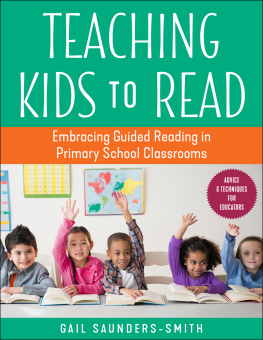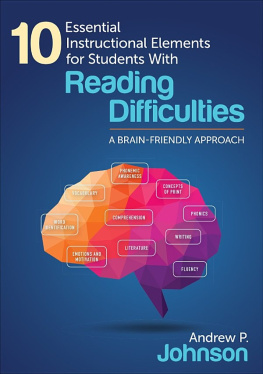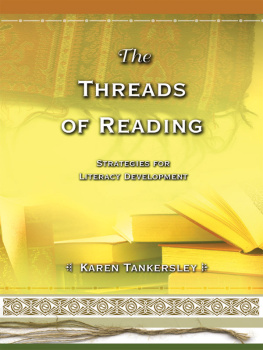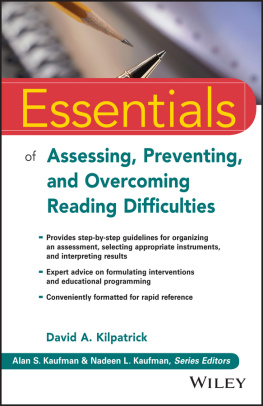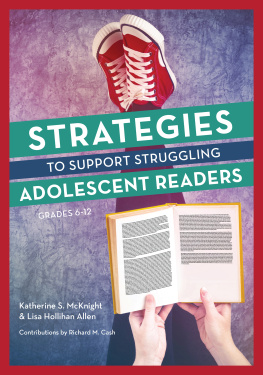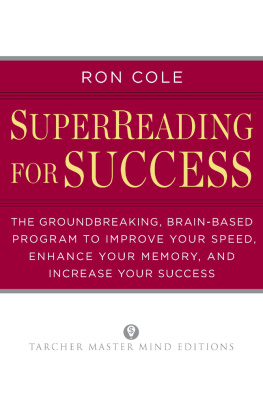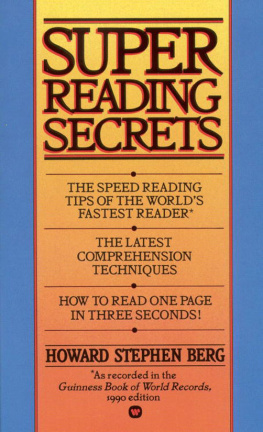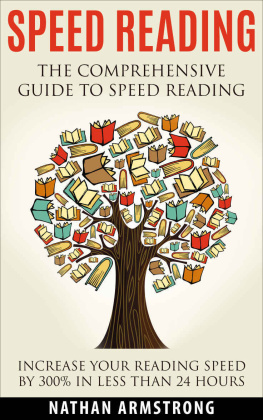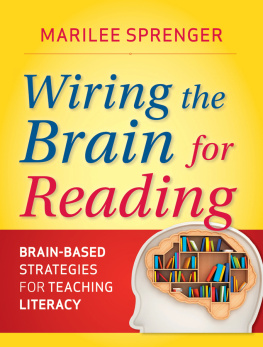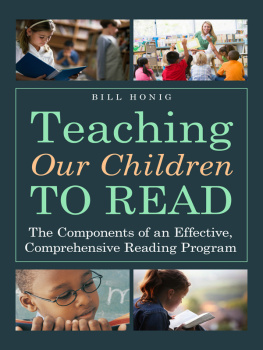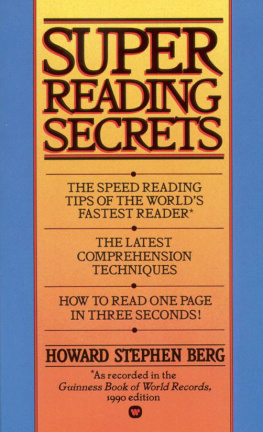Chapter 1:
What is Possible
Impact of poor skills
Reading is a gateway skill for all other learning. In fact, it is a gateway skill for a productive life. If an individual can learn how to read well, the possibilities become endless. But if that individual cannot read well, hope diminishes and the future seems bleak.
Experience of the poor reader
Poor readers bear the heavy burden of failure. I cant. Im stupid. Ive heard those statements countless times. They see others that can read, but they cant. Their conclusion is that there must be something terribly wrong with them.
They usually hate school and often hate themselves. Every day they are asked to perform tasks that are impossible for them to do. They may withdraw, or they may become aggressive. Low self-esteem is generalized to every area of life. The anxiety may lead to depression or juvenile delinquency and drugs. If they are not supported at home, they may drop out of school, glad to leave a place that tore away at their soul.
These students are often tested again and again, labeled, and placed in special groups, special programs, and sometimes, even in special classrooms. They may be called dyslexic, learning disabled, writing disabled, ADD, or ADHD. But some are not labeled. These students struggle on their own with little extra help.
Impact on teachers
Dedicated and caring teachers work hard to help these students. They reteach lessons but become discouraged when there is minimal change in reading skills. Many teachers feel frustrated and sad. They often just accept the fact that many struggling readers will not be able to read at grade level. They support these students as best as possible with strategies focused on meaning and comprehension.
Impact on parents
Parents are shocked to find their bright, energetic child is not doing well in school. Distraught, they look for answers but often find none. It is confusing to them that their child who is so intelligent cannot learn to read well. And no one seems to have an answer.
The impact on society
The toll on our society is devastating. The impact of poor literacy ripples through every segment of our culture and costs billions of dollars a year. Our economy, our health care system, and our criminal justice system are impacted by low reading achievement. Individuals who cannot read well are at risk for crime, mental health issues, unemployment, and poverty. The relationship to crime is so well-documented that many states determine the number of prison cells needed based on 4th grade reading scores. There is no argument that low literacy rates have a negative impact on an entire society.
There is good news! We have the tools!
Over thirty years of scientific research has provided enough information so we truly have the tools to teach students of all ages how to become proficient readers. In this book, we will look at the research, build the knowledge base to implement the research, and explore strategies that have been proven to produce skilled readers. These methods have been researched, formally tested, and demonstrated to help all students kindergarten through 12th grade read proficiently unless they have some type of severe disability. Even those improve beyond expected levels.
An example
I worked with a group of teachers who were learning how to teach struggling readers. They mistakenly chose to teach children in special education classrooms, the most challenging type of student to teach. These were children who were never expected to read well. The teachers were amazed at the results. Their conclusion: Every child can learn to read well. What did they do? These teachers taught the right content in the right sequence with the right instruction.
Here are the stories of some of my students who went from struggling reader to skilled reader. These students were taught using a special curriculum that teaches the right content in the right sequence with the right kind of instruction. It consists of 45 one-hour lessons. With this curriculum, significant change is usually observed by parents and teachers within the first six to eight lessons. In addition to the one hour lesson, students read 30 minutes a day in a book of their choice. These students were like most other struggling readers.
- They all read below grade level. Some read several grades below grade level.
- They had received various kinds of interventions without much change in their reading.
- They hated to read.
- They struggled with school. Most hated it.
- Most had low self-esteem. They considered themselves failures.
Manuel
When Manuel entered second grade, he was reading well below grade level. At the end of second grade, he still had not caught up even though many different interventions were used.
Nothing seemed to work. He had made some progress, but not enough. The same pattern followed Manuel through third grade, and upon entering fourth grade, his reading level was still well below grade level. His teacher then began teaching the right content in the right sequence with the right instruction. By the end of fourth grade, Manuel was reading


